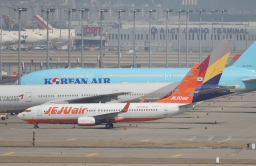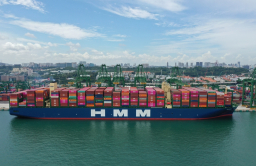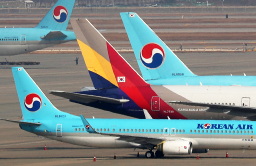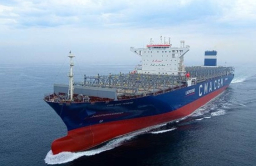-
KOSPI 2577.27 -2.21 -0.09%
-
KOSDAQ 722.52 -7.07 -0.97%
-
KOSPI200 341.49 +0.02 +0.01%
-
USD/KRW 1396 -2.00 0.14%
KDB chairman urges FTC to approve merger of Korean Air, Asiana
M&As
KDB chairman urges FTC to approve merger of Korean Air, Asiana
The state-run bank chief is also asking the antitrust regulator to do its role in shipbuilding and shipping issues
By
Sep 14, 2021 (Gmt+09:00)
3
Min read
News+
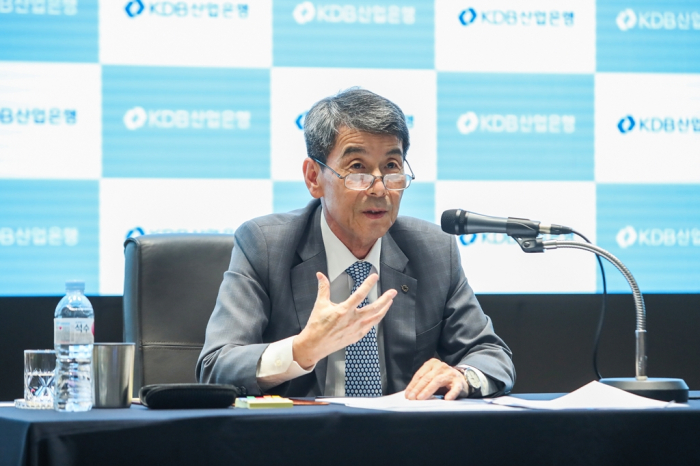
A speedy approval by South Korea’s top antitrust regulator of the proposed merger of Korean Air Lines Co. (KAL) and its local rival Asiana Airlines Inc. is required to revitalize the Korean aviation industry, according to the main creditor of the two airlines.
Lee Dong-gull, chairman of the state-run Korea Development Bank (KDB), said in an online media briefing on Monday the Fair Trade Commission (FTC) should swiftly finish its review of the merger plan, which Korean Air submitted in January.
“The integration of the two Korean airlines is inevitable and essential to ensuring their survival and enhancing competitiveness in the global market,” he said in a rare remark targeting the state antitrust body.
“I hope the authority will approve the deal as soon as possible.”
He said it is regrettable that the Korean FTC sits on the approval for long at a time when the US and other countries’ authorities are moving to protect their companies against tougher regulations levied by other nations.
Korean Air’s parent Hanjin KAL Corp. and the KDB, the main creditor of both airlines, announced in November of last year that Korean Air will acquire a 63.9% stake in debt-ridden Asiana in a 1.8 trillion won ($1.6 billion) deal.
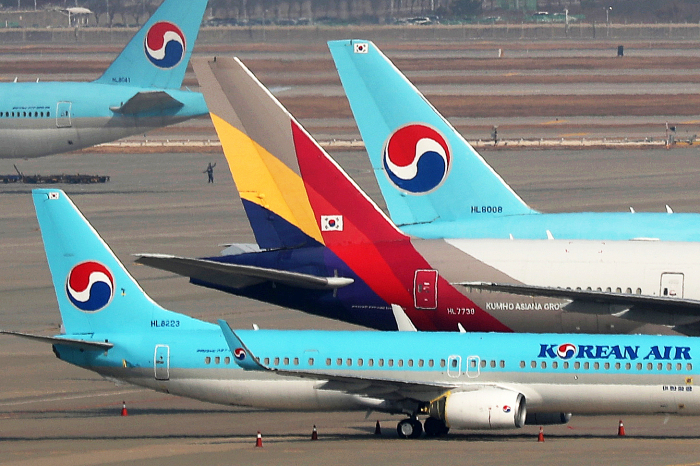
Once completed, the merged entity will emerge as the world’s seventh-largest airline.
The FTC was supposed to hire an outside auditor for a review of the merger by June, but the process was delayed until October.
Korean Air must obtain the greenlight for its acquisition of Asiana from nine countries, but has so far received approval from only a couple of countries, including Turkey and Taiwan.
HYUNDAI HEAVY-DAEWOO SHIPBUILDING MERGER
The KDB chairman also asked the FTC to fulfill its role and help the stalled review by the European Union of the Hyundai Heavy Industries Group’s acquisition of Daewoo Shipbuilding & Marine Engineering Co. make progress.
“As the main creditor of the shipbuilders, we don’t want to see our taxpayers’ money just go down the drain through the merger of the ailing companies. We want to see the shipbuilders survive the intensifying global competition,” he said.
So far, Hyundai Heavy has won the needed approval from Singapore, Kazakhstan and China for its acquisition of Daewoo Shipbuilding.
The merger is still pending approval from the EU, Korea and Japan.
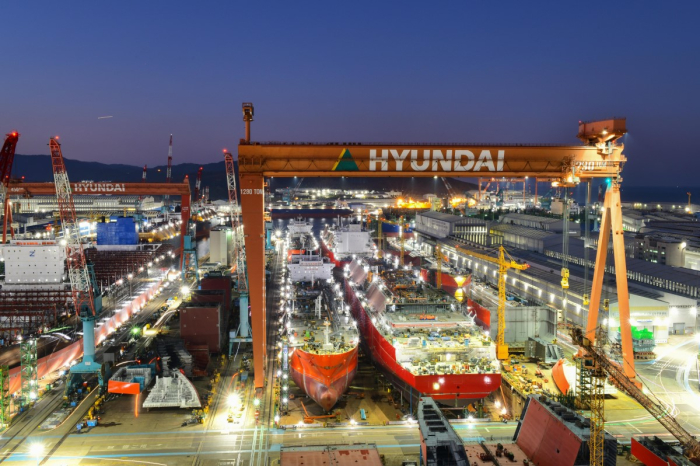
Last year, Hyundai Heavy signed an agreement to acquire a 55.7% stake in Daewoo Shipbuilding from the state-run KDB for 2 trillion won.
EU has postponed the scrutiny of the two Korean shipbuilders' combination three times, citing difficulties in conducting onsite studies of their facilities due to the COVID 19 pandemic. EU has not yet given a clear timeline for the review.
In June, the EU executive committee delivered the interim results of its review on the tie-up between Hyundai Heavy and Daewoo Shipbuilding. In the report, it stated that concerns over restricted competition as a result of their merger were resolved for the markets of tankers, container ships and offshore plants, but not in the segment of liquefied natural gas (LNG) carriers.
South Korea is home to the world’s three big shipbuilders – Hyundai Heavy, Daewoo Shipbuilding and Samsung Heavy Industries Co.
PRIVATIZATION OF HMM
Meanwhile, the KDB chairman said it is desirable for the state bank to sell its 24.96% stake in HMM Co., the country’s largest container ship carrier, while maintaining the 3.44% stake in HMM owned by Korea Ocean Business Corp. under the Ministry of Oceans and Fisheries.
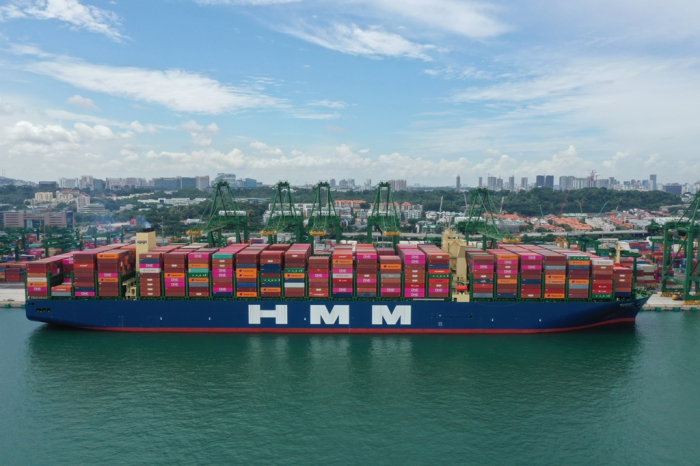
HMM, formerly known as Hyundai Merchant Marine, was taken over by KDB in 2016 after the shipper accumulated huge losses amid an industry slowdown.
Since then, more than 3 trillion won in taxpayers’ money has been injected into the shipping giant.
For the privatization of HMM, the state bank plans to sell its stake together with the shares held by other state-invested firms, including the Korea Credit Guarantee Fund which owns 7.11% of the shipping company.
Write to Ho-Gi Lee at hglee@hankyung.com
In-Soo Nam edited this article.
More To Read
-
Jul 19, 2021 (Gmt+09:00)
-
Jul 19, 2021 (Gmt+09:00)
-
Feb 22, 2021 (Gmt+09:00)
-
Dec 28, 2020 (Gmt+09:00)


